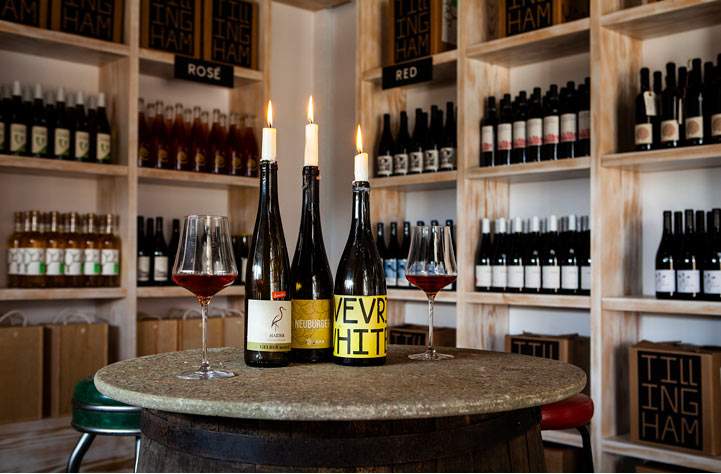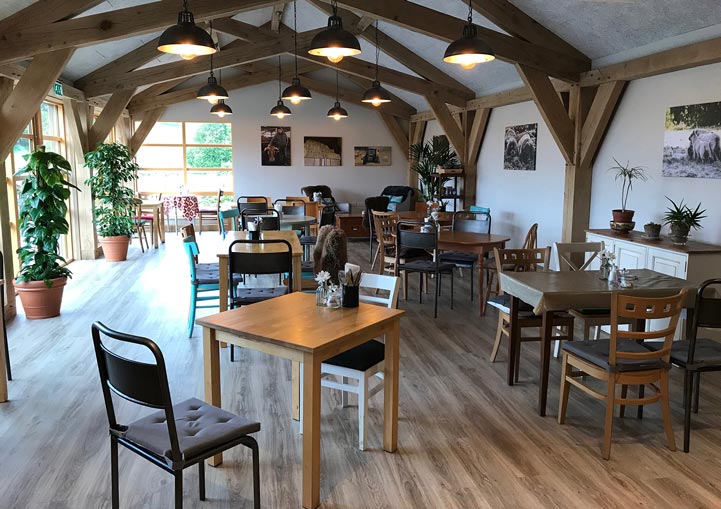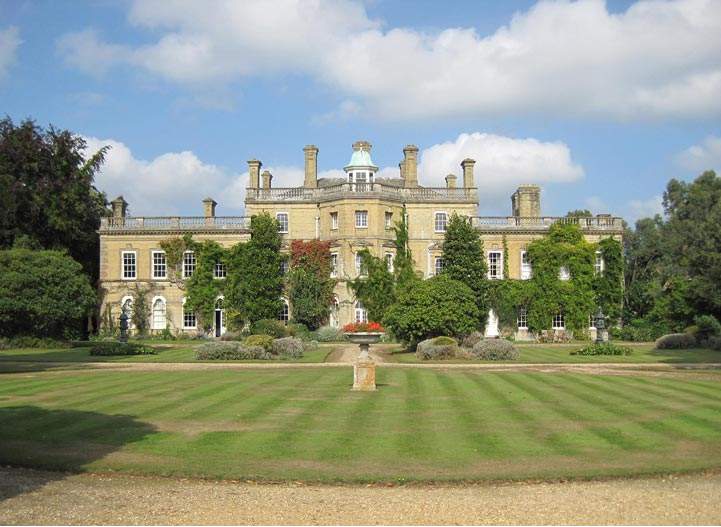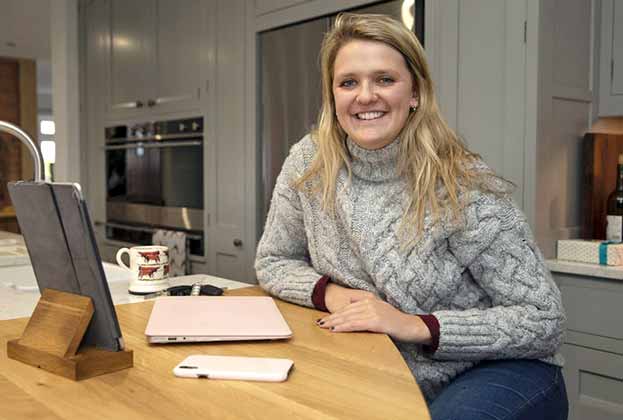There are countless ways to diversify, but as our case studies show it’s all about finding what’s best for you

Case study 1
Tillingham Wines
Nestled in the rolling hills and woodlands of East Sussex, Dew Farm enjoys far-reaching views down the Tillingham valley to the fortified town of Rye and beyond across Romney Marsh to the sea. The location prompted the landowner, Viscount Devonport, to research the farm’s suitability for growing vines. While undertaking this research he was introduced to wine maker Ben Walgate and they jointly formed Tillingham Wines Ltd. The first priority for the new venture, alongside planting the initial 10,000 vines back in 2018 – with a further 30,000 vines in 2019 – was to develop an on-site winery with sufficient equipment to make a range of interesting wines. The winery is certified organic and the wines are made using biodynamic techniques, including the use of qvevris (terracotta urns) imported from Georgia that are buried in the ground, which influences the flavour.
As the first wines became available, markets have been established not only locally but across Europe and beyond
Savills Rural Research
It takes three years for vines to mature so in order to improve cash flow while the vines grow, Ben has been making around 20 different wines using bought in grapes. He has produced some very successful reds, whites and rosés, including different styles of sparkling and orange wines.
As the first wines became available markets have been established not only locally, but across Europe and beyond. To promote the branding of this new vineyard and ensure that it stands out from the competition, particular effort has been made to emphasise the ethos of regenerative farming and low intervention wine making. In a thoroughly modern way, the business has relied heavily on Instagram to reach new markets.
Diversify the diversification
This attractive location, enhanced by the recent planting of its hillsides with vines, prompted the business to focus heavily on the opportunities provided by tourism in order to optimise potential returns.
Wine pairs naturally with serving locally-sourced food and so it seemed logical for the business to develop a small restaurant and wine bar with a bottle shop in the old farm buildings. The business plan also assumes that many customers will be drawn to the vineyard from a large catchment area so an 11-bedroom boutique hotel has been built to cater to those wishing to stay overnight, with vineyard tours forming part of the offer.
Adaptability and resilience paid off
The restrictions imposed by Covid-19 during the first summer season meant that nearly all the staff were furloughed, however the previous couple of years of building up a loyal following paid off with direct orders from customers. Once the restaurant re-opened, the airy space in the farmyard under an old Dutch barn was the ideal site for a few tables and a wood-fired pizza oven.
The land not suitable for vines continues to be grazed by sheep, cattle and chickens and a walled garden on the estate is used for growing vegetables. All of these enterprises are connected, providing produce for the restaurant.
The conversion of the farm buildings has been sensitively undertaken with minimal intervention, which has not only kept costs down but also ensured that there is a seamless link between the history of the buildings and their use today.
Case study 2
Newton Farm Foods

Hugh and Celia Gay are the third generation to operate the mixed farming business at Newton St Loe, three miles west of Bath. They initially started marketing their own beef in 2000 after deciding to sell the dairy herd. Over time, direct meat sales grew and redundant farm buildings were used to create a farm shop and a café. In 2010 the family established Newton Farm Foods, selling their own beef, lamb and pork directly to the public.
The farm shop has proven extremely popular and has grown significantly over the last 10 years. With the support of an EU Leader grant, the business was able to extend the café in 2019 and can now serve 1,400 covers per week. Around 50 other local suppliers have also come to rely on the farm shop as an important outlet for their own produce. The family also use the new facilities to host supper evenings, craft workshops and wellbeing classes along with farm open days and seasonal celebrations.
Demand for local food
Like many other businesses, Newton Farm Foods was heavily impacted by Covid-19. The lockdown meant that the café had to close overnight and the farm shop was restricted to reduced opening hours. In order to survive, the business has had to adapt. The family decided that if the public were no longer able to visit them, they would visit the public. In March the Gay’s created a delivery service, initially for people over 70 and those shielding, before extending to others within a five mile radius of the shop. Using refrigerated vans, the business was able to make 50 deliveries a day to 250 households a week.
Demand for local food was not limited to Newton St Loe. One YouGov survey showed that 61% of people used supermarkets less during this period and a separate survey by Kantar suggests many turned to smaller, independent stores, which saw sales increase by 69%.
Creative opportunity
Lockdown also provided the perfect opportunity to realise an ambition to produce their own range of quality ready-to-eat meals. Their range now extends to eight mains, three desserts and three side dishes, all handmade in the café’s kitchen using locally sourced produce. The ready-to-eat meals have fast become a customer favourite and the delivery service still operates twice a week, making essential deliveries to those shielding or vulnerable.
As lockdown measures eased, the café and farm shop returned to operating as normally as they could within the regulations. Always looking to grow, the business is now developing an online ordering system and is hosting a pick your own pumpkin enterprise developed by Hugh and Celia’s son Josh, who now manages the day-to-day farming operation.
Covid-19 has shown that businesses must be able to adapt and diversify in order to maintain business continuity.
Case study 3
Pylewell Park

Pylewell Park is located in the New Forest National Park on the south coast of England and is owned by Lord Teynham, who inherited the estate in 1988. Because the property was vacant and in need of repair, the trustees agreed that a commercially viable and sustainable use was needed for the house, gardens and parkland in order to contribute towards its restoration and ongoing maintenance. In 2015, Simon Foster of the Tourism, Leisure and Events team was instructed to assess the opportunities at Pylewell. The conclusions from the initial assessment highlighted an opportunity to create a significant weddings and events enterprise in a semi-permanent marquee in the gardens, complemented by guest accommodation in the numerous, but unrestored guest bedrooms in the house.
Weddings and staycation market
A feasibility study and a subsequent business plan were completed, which included projections on the likely number of events over a 10-year period and the return on investment. Savills helped the Pylewell management team secure planning consent, source key suppliers (including a state of the art semi-permanent marquee and external event caterers), and recruit a new marketing and events coordinator to manage the day-to-day business.
Two years later bookings have exceeded targets and, as part of a second phase, 10 bedrooms in the house have been refurbished for overnight guests. In addition, the development of the website and the effective use of social media have been crucial in attracting a high volume of enquiries.
In response to the changing restrictions caused by the pandemic, Pylewell has adapted its offering to create a 'micro wedding' package that includes exclusive hire of the house for a weekend, with a small ceremony, dinner and overnight accommodation for family and close friends. As a result, a number of clients have happily adapted their wedding plans rather than cancel or postpone. This has ensured that cashflow has been better protected during this challenging time.
In addition, a penthouse flat has been turned into a holiday let to make the most of the flourishing staycation market and help cashflow in the short term. Looking forward, the estate is looking at other leisure opportunities, including outdoor events and third party glamping enterprises.
Read the articles within Spotlight: Farm Diversification below.
.jpg)

